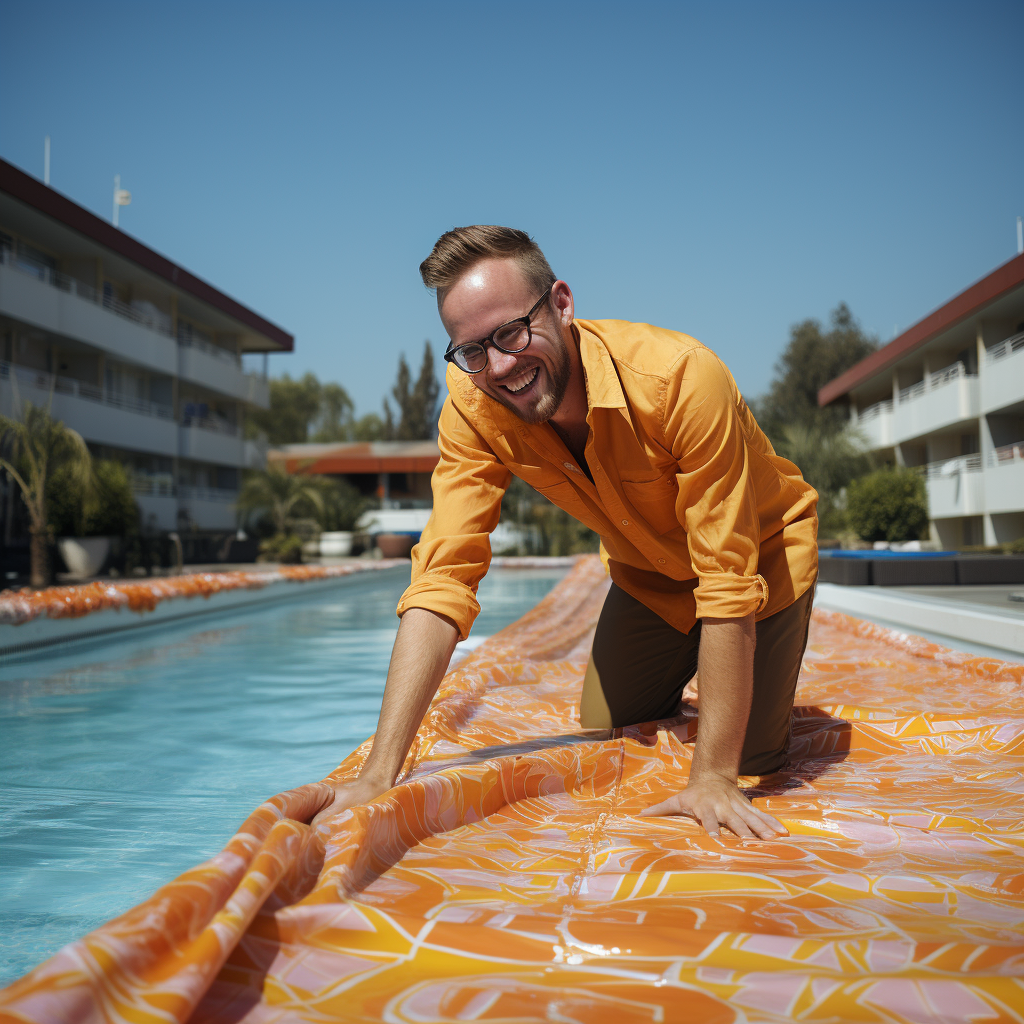Owning a Commercial property with a pool is like having a shiny, watery gem that everyone wants to dive into. But let's get real—pools are not self-cleaning magical ponds. They need TLC, and as a property manager, you're the caretaker. So, how do you keep that pool sparkling? It's all about the 3 C's: Circulation, Cleaning, and Chemistry.
Circulation: The Heartbeat of Your Pool
Think of circulation as the cardiovascular system of your pool. Without proper circulation, you're inviting algae and bacteria to a pool party, and trust me, they're not the guests you want.
Pump It Up: Contrary to popular belief, pool pumps usually run 24/7 to ensure optimal water quality.
Skim, Don't Scam: Regularly skim the surface to remove debris that could clog the system.
Know Your Flow and Pressure: It's crucial to be aware of your pool's required flow rate and pressure vacuum gauges. When you notice a significant drop in these readings, it's a clear signal that it's time to clean your filters.
Did You Know? According to the Centers for Disease Control and Prevention (CDC), poor circulation is a leading cause of recreational water illnesses.

Cleaning: Not Just for Show
Cleaning isn't just about aesthetics; it's about health and safety. A dirty pool is a breeding ground for germs.
Vacuum Away: Use a pool vacuum to clean the floor and walls.
Brush Off: Brush the walls to remove algae and prevent algae growth.
Clean Tiles: Scrub the pool tiles weekly to prevent algae and bacteria growth.
Empty Baskets: Clean skimmer and pump baskets weekly.
Task | Frequency | Tools Needed |
|---|---|---|
Vacuuming | Weekly | Pool Vacuum |
Brushing | Bi-weekly | Pool Brush |
Tile Cleaning | Weekly | Tile Cleaner |
Basket Clean | Weekly | Gloves, Bag |
Extremely Important: The frequency of cleaning tasks will depend on usage and environmental factors like leaves and shrubs. For example, a busy waterpark will require more frequent cleaning compared to a small HOA pool.
Chemistry: The Pool's pH.D
Ah, chemistry—the subject you probably avoided in school but can't ignore now. The pool's chemical balance is crucial for safe swimming conditions. The guidelines mentioned here are based on Florida state regulations.
pH Levels: Keep it between 7.2 and 7.8. Lower is acidic; higher is alkaline.
Chlorine: Aim for a level of 1-3 ppm (parts per million).
Alkalinity: Maintain between 80-120 ppm.
Expert Tip: The National Swimming Pool Foundation recommends testing your pool's chemistry twice a day: once before opening the pool and once before the end of your shift.
For those of you outside the Sunshine State, it's crucial to check your local guidelines. Visit Pool Research to find regulations specific to your state.
📋 Action List: Tailoring Your Pool Care Routine
Assess Traffic Levels
Determine whether your pool experiences high or low traffic. This sets the stage for your entire cleaning and maintenance schedule.
Check Environmental Factors
Note surrounding trees, shrubs, and other environmental elements that could affect pool cleanliness.
Set Circulation Schedule
Understand that pool pumps usually run 24/7. Make sure your pump is up to this task for optimal water quality.
Monitor Flow and Pressure
Keep an eye on the pool's required flow rate and pressure vacuum gauges. A significant drop is your cue to clean the filters.
Develop a Cleaning Calendar
Create a weekly or bi-weekly cleaning schedule. High-traffic pools may require more frequent cleaning.
Tile Cleaning
Add tile cleaning to your weekly tasks. If your pool is near trees or shrubs, you might need to do this more often to prevent algae and bacteria growth.
Chemical Testing
Plan to test the pool's chemistry twice a day: once before opening and once before closing. Adjust this based on special events or unusually high traffic.
Consult Local Guidelines
Check your state's pool care regulations to ensure you're in compliance. For Florida-based pools, follow the state guidelines. For other states, visit Pool Research.
Review and Adjust
At the end of each month, review the effectiveness of your pool care routine and make necessary adjustments.
Staff Training
Ensure all staff members are trained on the new pool care routine. This ensures consistency and effectiveness.
Conclusion
Managing a property with a pool is no small feat, but mastering the 3 C's of pool care can make your life a whole lot easier. Circulation keeps the water moving, cleaning ensures it's safe, and chemistry balances it all out. So, don your shades and roll up your sleeves; it's time to make your pool the oasis it was meant to be.


